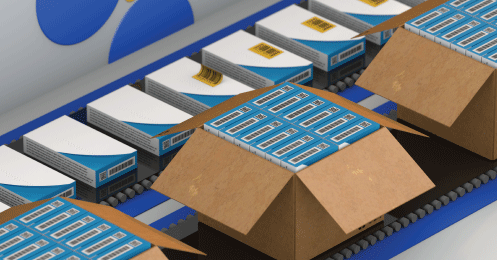Canada and the United States are often referred to as brothers or even besties. Sharing a border means it’s easy enough for businesses to sell to customers on the other side but in reality, it can be quite complex. For one, tax laws are very different between the two countries; if you have an upcoming audit and your finances aren’t in check, you could be facing a real-life nightmare. Using a software system such as Blue Link ERP to manage your sales, accounting and finance, means you have access to our partners at Avalara who provide a solution that can help you ensure you’re up to date on tax changes and compliance. Taxes, while not the glamorous side of any business, is necessary to understand.
As a quick overview, the difference between the Canadian and the United States Sales Tax systems is that Canada uses a Value Added Tax system separated into three categories as opposed to the Sales and Use system in place in the U.S. You may notice that there is no federal sales tax imposed in the United States because every state governs their own tax laws.
- Canada - Value Added Tax System (separated into 3 categories)
- United States - Sales and Use System
| United States Sales and Use Tax | |
|---|---|
| Sales Tax | A tax collected from businesses at the time of purchase and remit to the appropriate government. |
| Use Tax | Placed on a good or service in which no sales tax has been paid. These purchases are made outside the taxing jurisdiction but are used within a state that taxes for that product/service. |
| Canadian Sales Tax | |
|---|---|
| GST - National goods and services tax | Federally Levied |
| PST - Provincial sales tax | Levied in certain provinces (BC, MB, SK, QC) |
| HST - Harmonized sales | Levied in certain provinces (NB, NL, NS, ON, PEI) |
Canadian Businesses Selling into the US
So, yes, United States tax compliance is a tricky beast – and it’s not just a problem for your retail counterparts. Whether you’re selling B2B or B2C, you need to understand and consider the different tax implications for your business. Here are a few key compliance issues to be mindful of if you’re a Canadian wholesaler or distributor selling to our southern neighbour.
Consumer Use Tax
When people say “sales and use tax” this is the “use” part of that term. Use tax can be triggered in several ways:
- Operating a central purchasing department with inventory transfers to multiple locations
- Offering promotional items or free samples
- Using goods in-house originally intended for resale
Physical Presence
Sales tax obligations aren’t just determined by your factory or warehouse location. If you sell online, attend tradeshows and expos, or have sales reps or affiliates in the United States, you may have to register and file returns in those states.
Remote Sales
Each state has its own laws for sales tax. Most have economic nexus rules, so regardless of physical presence, sales activity that reaches a designated threshold creates a compliance obligation.
Tax-exempt Sales
A lot of U.S. sales tax law includes provisions for exemptions. In some cases, certain items aren’t taxable, but in others, specific organizations or businesses are tax-exempt when making qualified purchases. In those cases, you’re required to collect a valid exemption certificate to support each untaxed sale. To complicate things further, both the rules and forms are different for each jurisdiction.
To simplify sales and use tax compliance, consider automating time-consuming tasks like rate calculation and updates, preparing sales tax returns, and managing exemption certificates. Avalara, a leading provider of cloud-based tax compliance automation solutions is a Blue Link partner with a SaaS-based solution that connects directly with Blue Link ERP, so you can handle sales and use tax compliance within your existing system.










